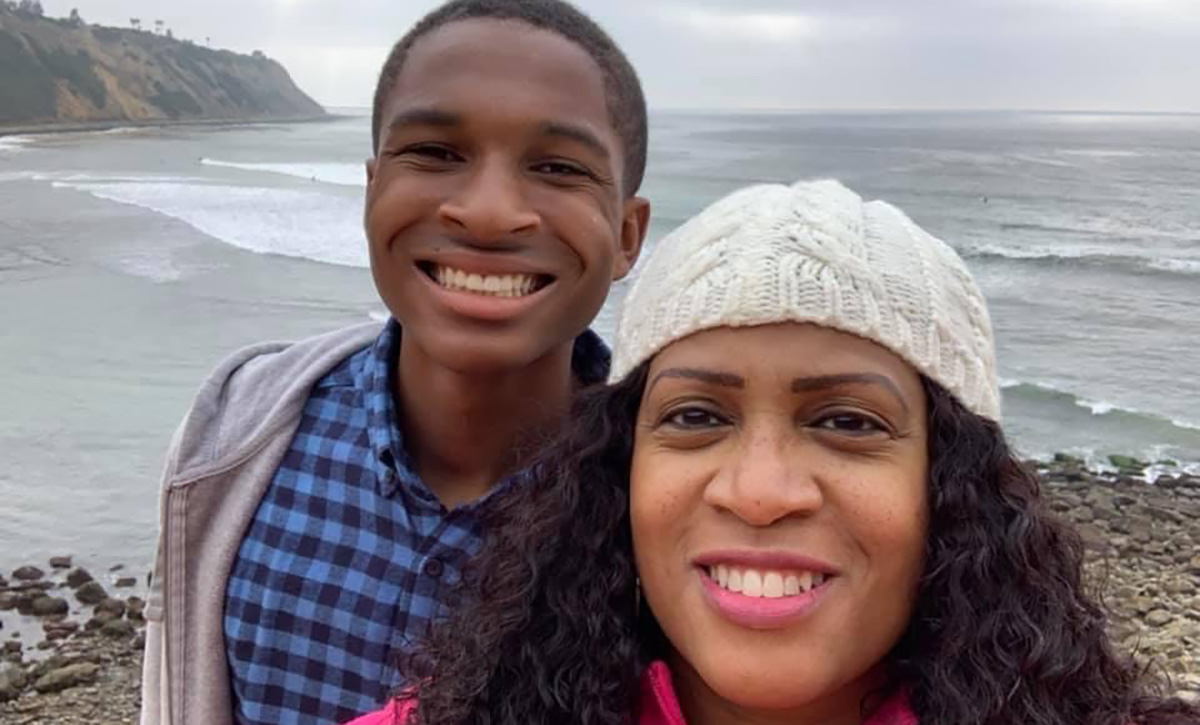Why I Had To Leave The Community I Loved To Find the School That Served My Needs
As a student with autism beginning my high school career on the heels of COVID, finding a learning community that supported and valued me wasn’t easy

Get stories like this delivered straight to your inbox. Sign up for The 74 Newsletter
After finishing my freshman year of high school, I’ve taken time to reflect on my experiences. It was an unusual year where I attended two schools: the first semester was at a Los Angeles area high school near my former home in Playa Del Rey and the second semester was at South High School in South Torrance, where I live now.
Coming out of COVID-19 isolation, I looked forward to making up for many missed social opportunities with friends. I joined the track team at my new school and did well in my events. I made good friends with some of my teammates and other students on campus, which can be challenging for me as a person with autism. When my mom was looking for a church for us to attend, my track coach shared information about his church, and we began attending on Sundays; I also went to a Wednesday church youth group when my study schedule allowed it. Thanks to social media, I could keep in contact with friends from my former school, and I even have a girlfriend who attended my old school.

But despite it being a terrific year for me overall, I feel profound disappointment in the circumstances that led me to South Torrance. Several racially charged events occurred during my middle school years, such as the George Floyd and Ahmaud Arbery murders and trials. As a result, there were many discussions about race and safety in white communities. In the climate at that time, I expected to be safest with the same people who protested, saying, “Black Lives Matter” and “Stop Killing Our Sons.” I thought the people who said my life matters would believe that my education also matters. Unfortunately, I didn’t find the community, accountability, collaboration and support that was talked about at those 8th grade recruitment meetings during my first semester in a school attended mostly by students of color and run mostly by educators of color.
I found myself in a situation where some teachers were not motivated to teach and help their students succeed, some were bullied by their own students and didn’t know how to discipline the class and some repeated the same lessons and shared the answers before they gave tests and quizzes (and some kids still failed!). When my mom, herself an administrator who has been in education for over 20 years, tried to intervene, it was difficult to impossible to get some teachers to respond or administrators or other top education officials to address the problem. Eventually, she started looking for a new home in a different school district and we moved in December.
South High is a predominantly white and Asian ethnic high school where most of the teaching staff is also primarily white and Asian. They treat their students as I expected a school should, providing counselors, tutoring and “Spartan Seminar.”
Spartan Seminar is a 25-minute session every Wednesday and Thursday, where students sign up for specific classes to catch up on work, get tutoring from the teacher or study for an upcoming test/quiz with that teacher. If you are not doing well in a class or on an assignment, you are expected to attend Spartan Seminar for that class.
My Spanish teacher has great classroom control. First, he provides us with study guides (not answers!) for upcoming quizzes. He reviews the homework to ensure we are updated on the current unit’s information. Finally, whenever someone does act up, he raises his voice and tells them to stop, which works, and we immediately return to learning.
My algebra teacher at South High was terrific. She showed the class how to work on new equations, like factoring and polynomials. She has a pleasant personality, making learning enjoyable for everyone in her classroom. She didn’t wait for my mom to email or call her; she often emailed my mom if she had information she thought would help me. My friends all agreed that she is a good teacher, which is unusual for a math class, and some even consider her their favorite teacher.
I finished the semester at South High with 4 As, 2 Bs, and a C. It took much work, and I sometimes spent as many as six hours a night doing homework to learn the subject. I credit my school team and my mom because they challenged me to communicate with them about when I needed help and they created a schedule to review my work and grades to ensure I was on the right track. I was motivated to work harder at South High because I knew it was expected of me. I did not mind staying at my desk for hours and sometimes sacrificing my sleep to get the grades I knew I could if I tried hard.
Although this was a great school year, I am disappointed that I had to leave a community I loved to find it. I also don’t want to suggest that my old school was not a good school because it was attended and run predominantly by people of color. I was raised by a Black educator, who cared so much about her students that we still go to their weddings, graduations, sporting and social events years after they were in her class.
If I could go back and talk to the staff at my former school, I would want them to know that:
I want to be valued as someone who takes their work seriously.
I want teachers who take their jobs seriously and hold me accountable.
I want to look up to my teachers, like what I see, and be like them.
I want them to care enough to know who I am because my life matters to them, for them to see my potential and help me reach my goals.
My African-American peers and I want to be educated by teachers who look like us.
We want to hear their stories. We want to hear how they made it to college. If they go, maybe we can go, too. Tell us about African-American fraternities and sororities, dorms and the fun times they had so we know that college isn’t just boring hard work. We want to hear about their mistakes, so we learn from them.
We want to know about the problems they faced in predominantly white spaces and how they overcame them so that when we have those experiences, we can overcome them, too.
We want to talk to them about our experiences as African-American students and know that they understand. We sometimes do not want to “air our family business” to people who may not understand or who already stereotype us because we are African American. They don’t understand our community, language, idioms, values or history. They don’t understand us, no matter how well intentioned or woke they are.
The teachers are the ones who told us they would do all these things for us and it hurts the most to think they are aware of our unmet expectations. I want them to know that, too.
My goal is not to criticize but to remind them that their students need them. We want them to care about us. Some of their students will only care when they do. We are waiting for them.
Get stories like these delivered straight to your inbox. Sign up for The 74 Newsletter

;)